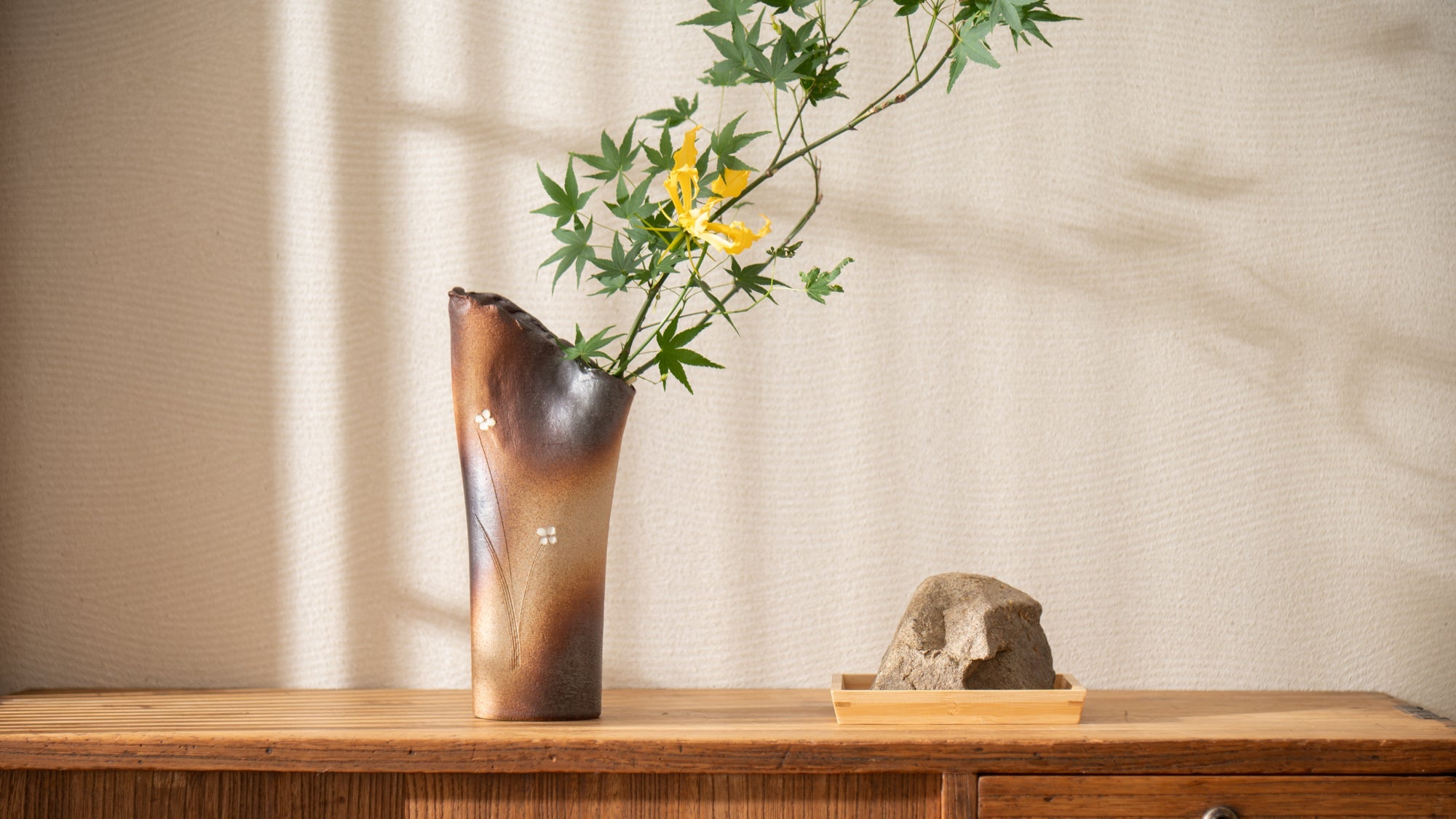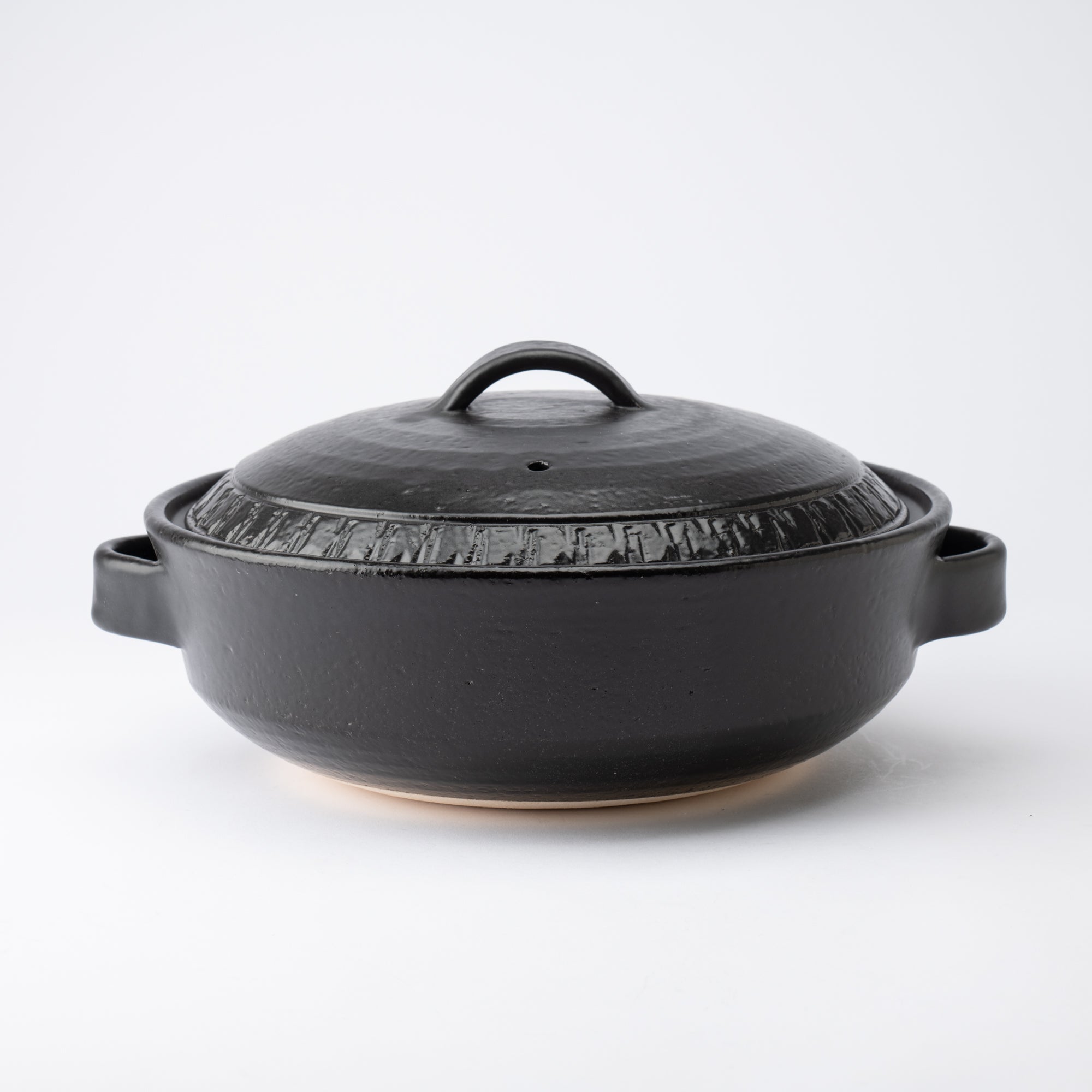
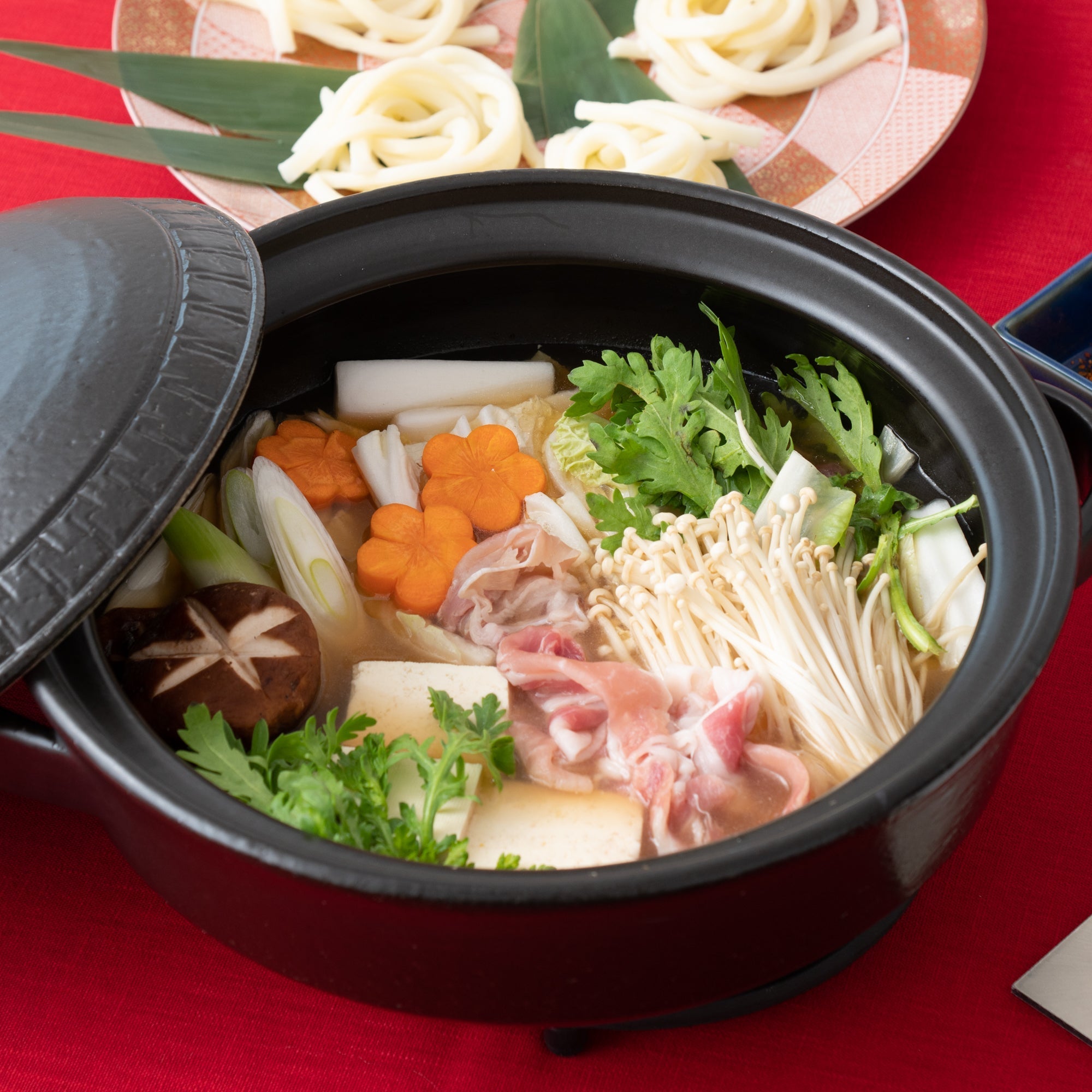
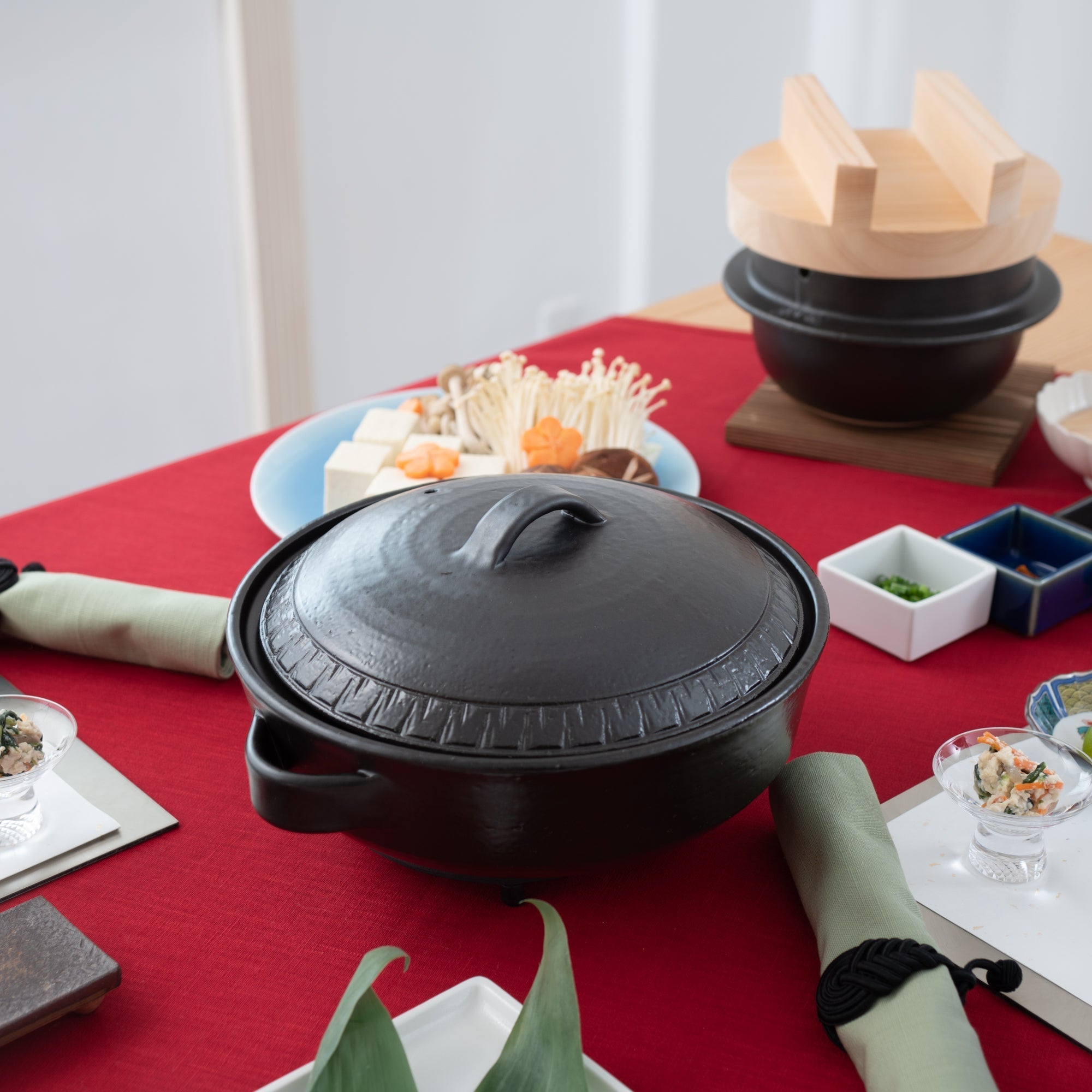
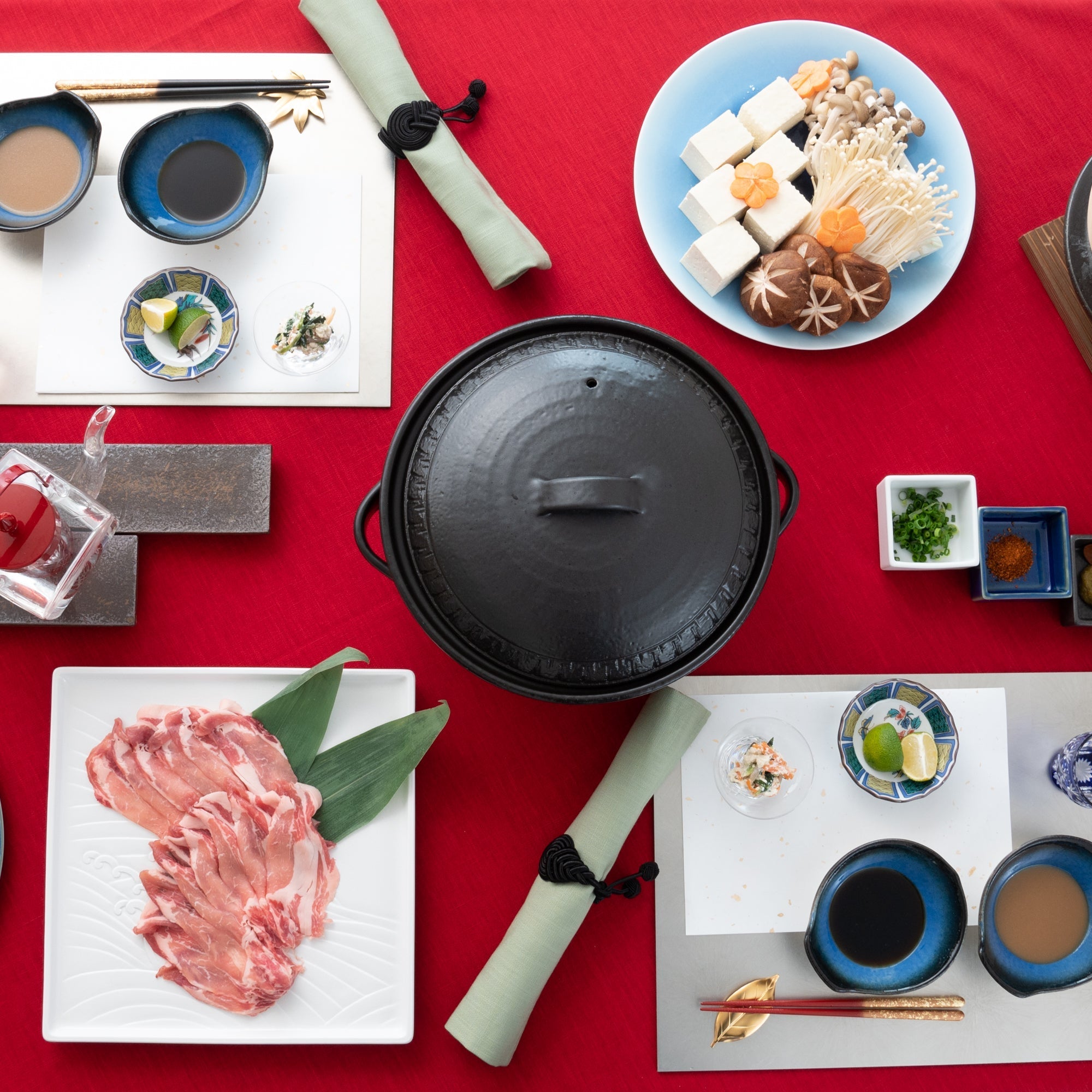
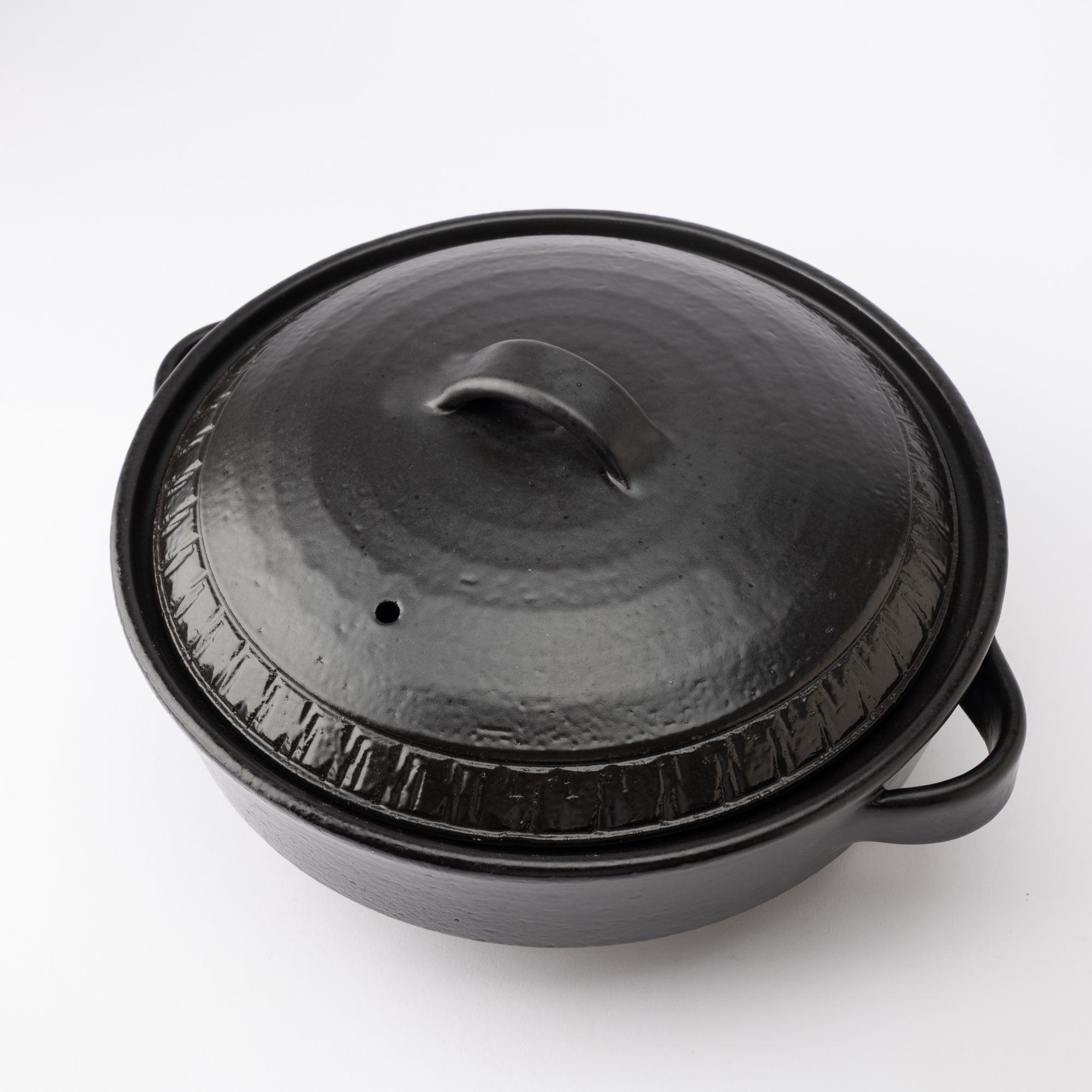
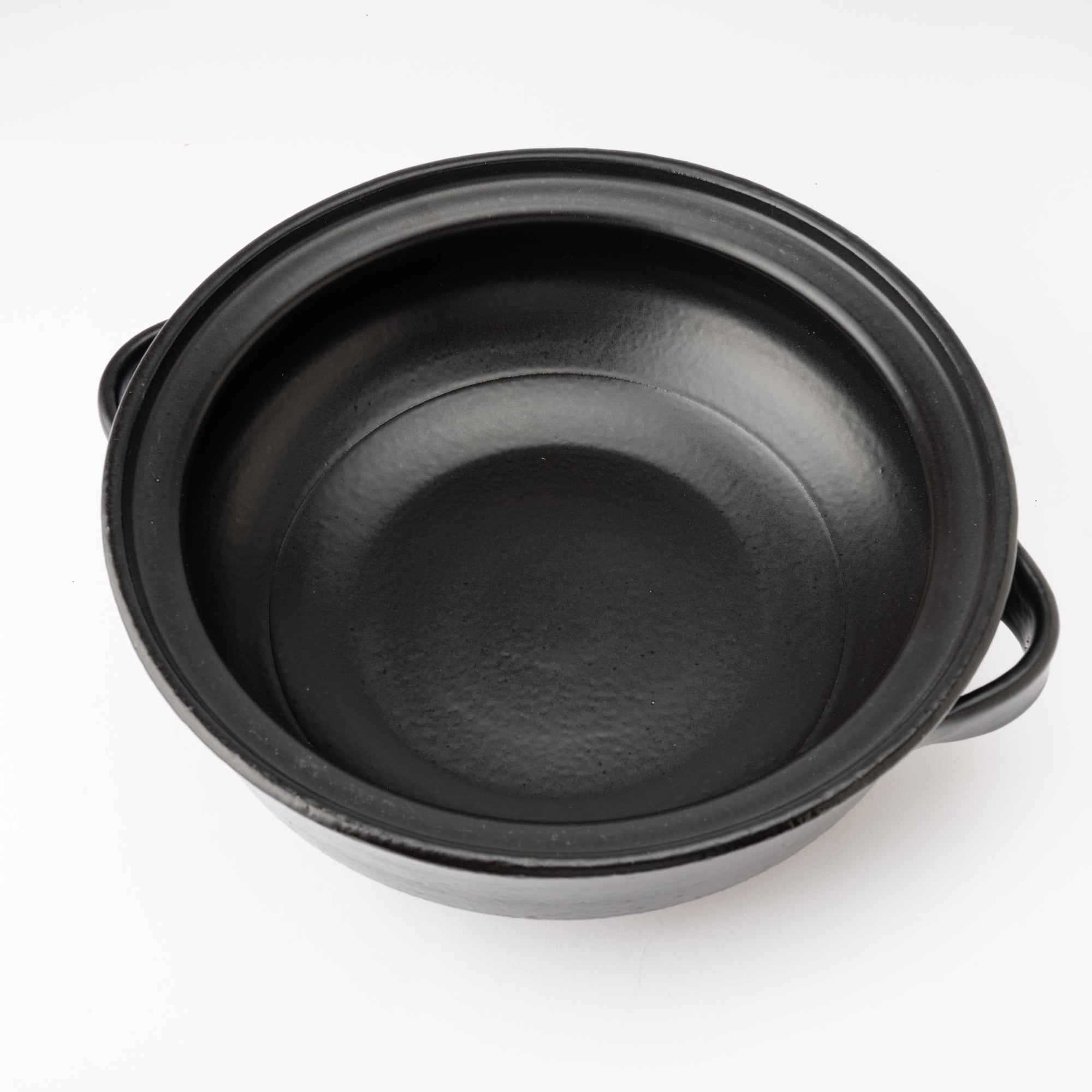
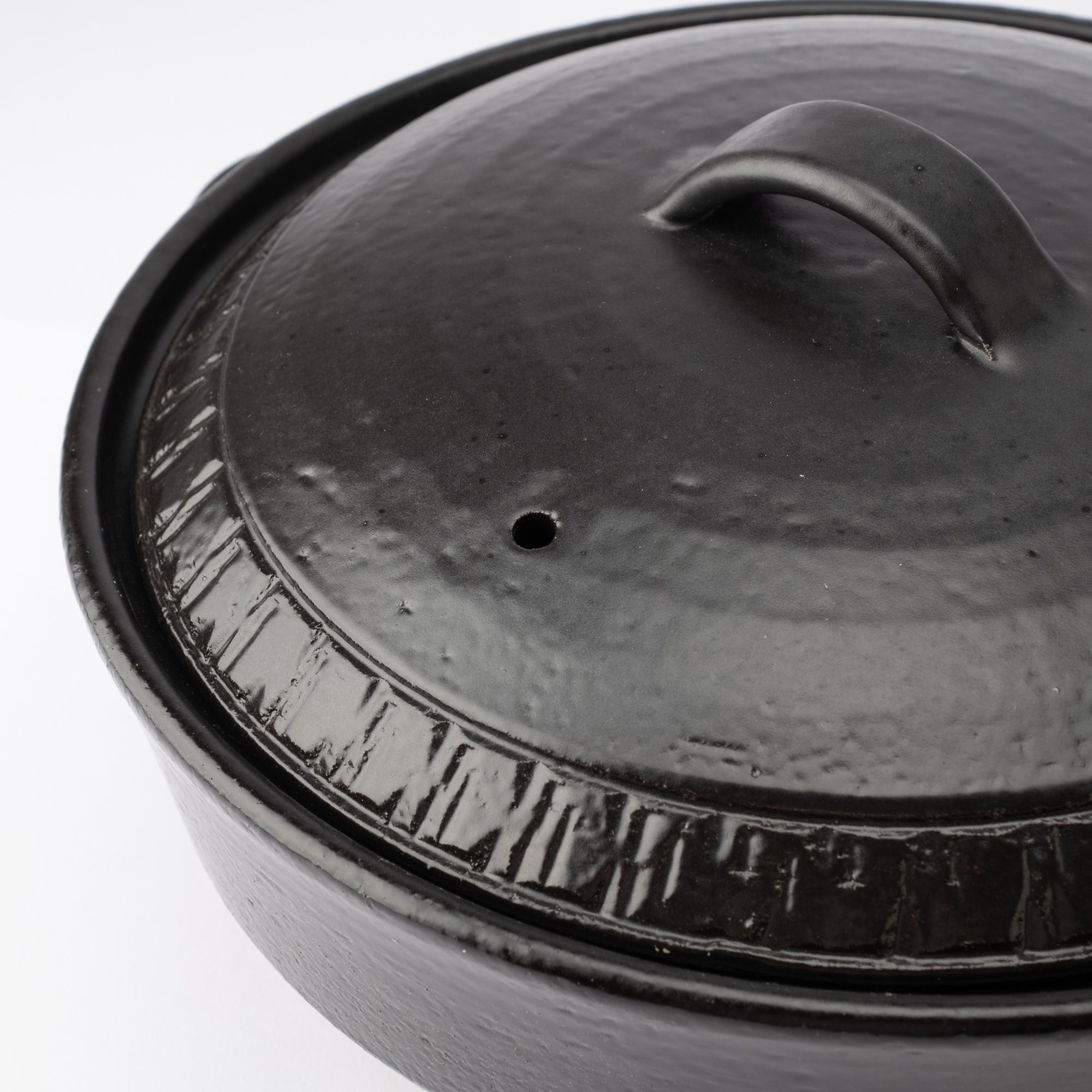
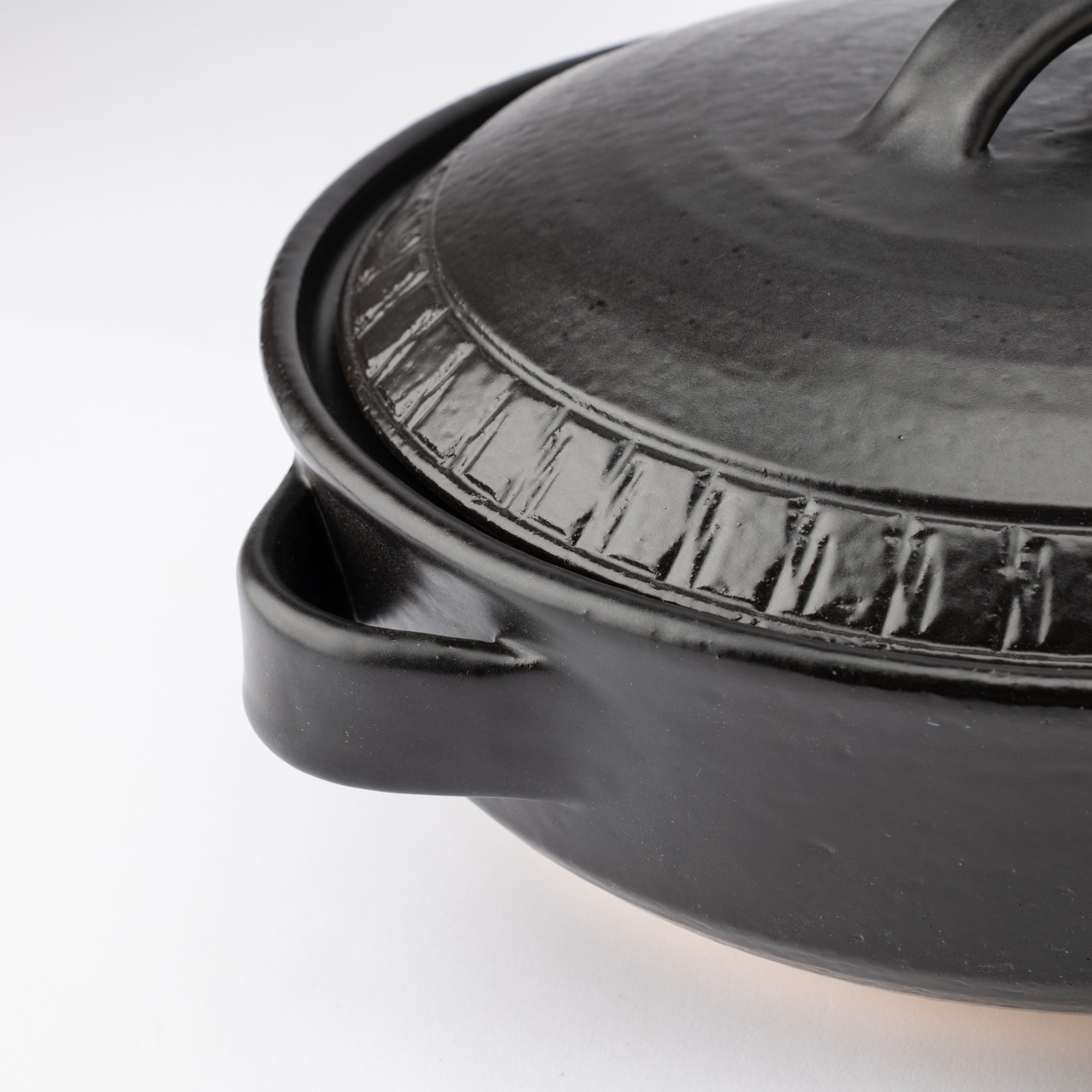
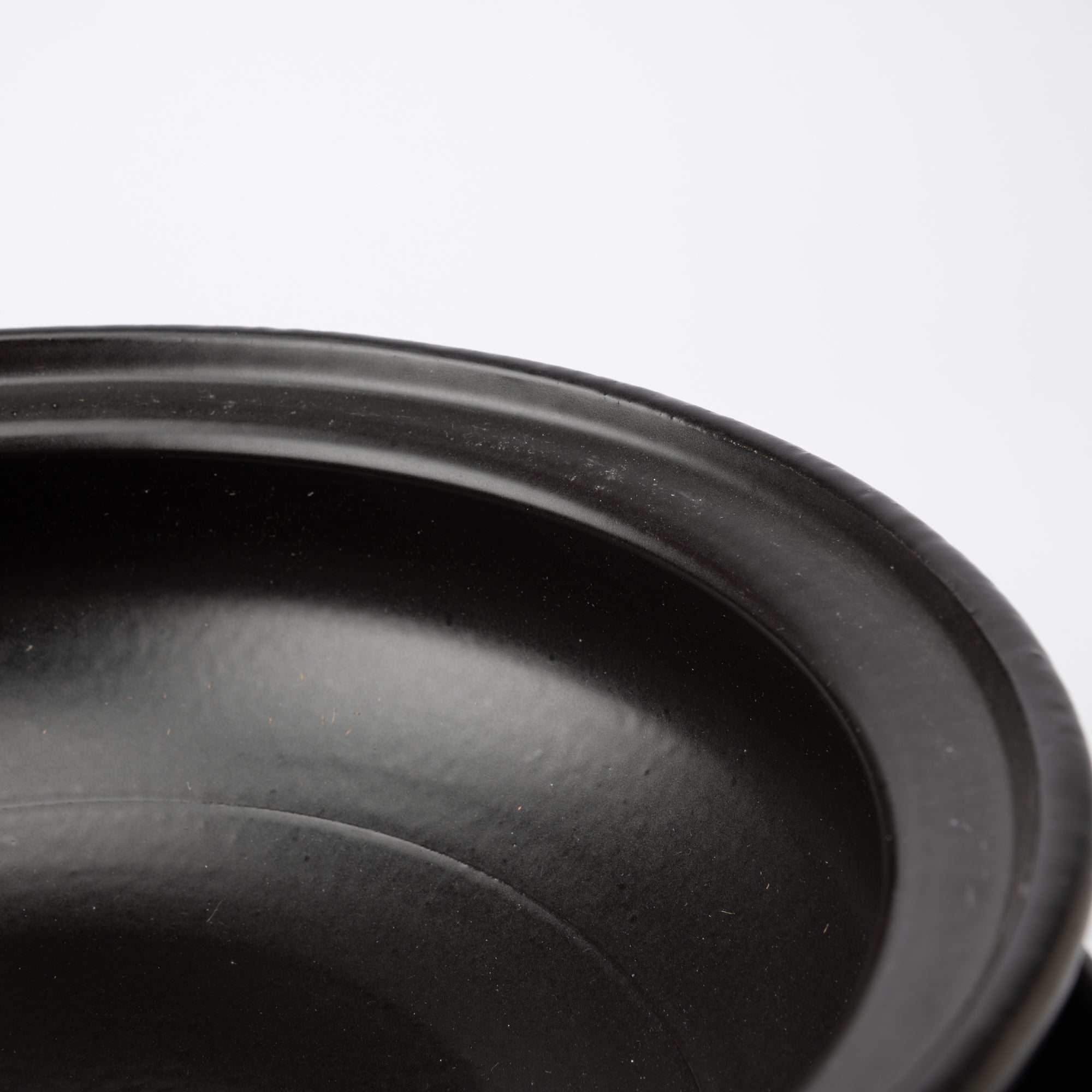
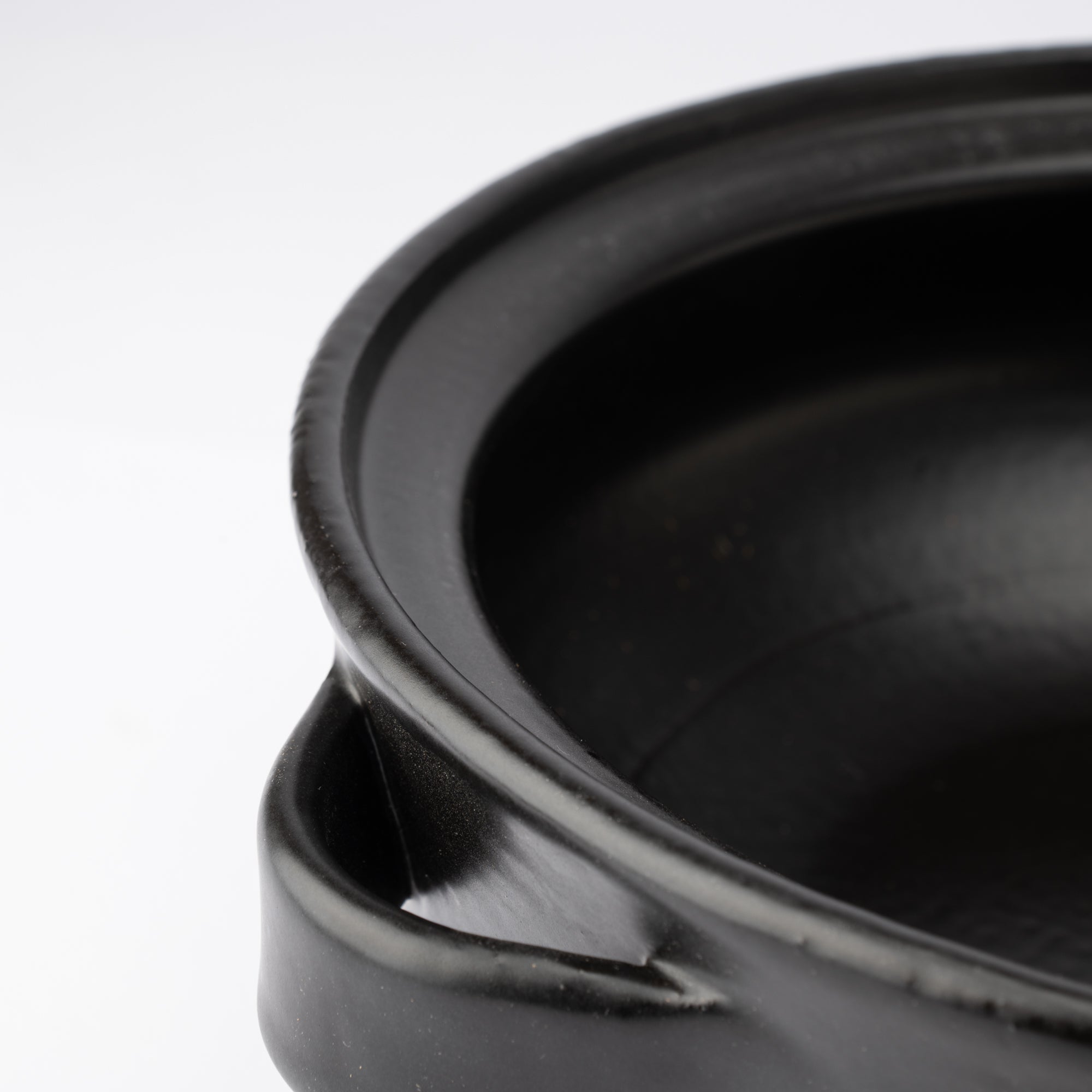
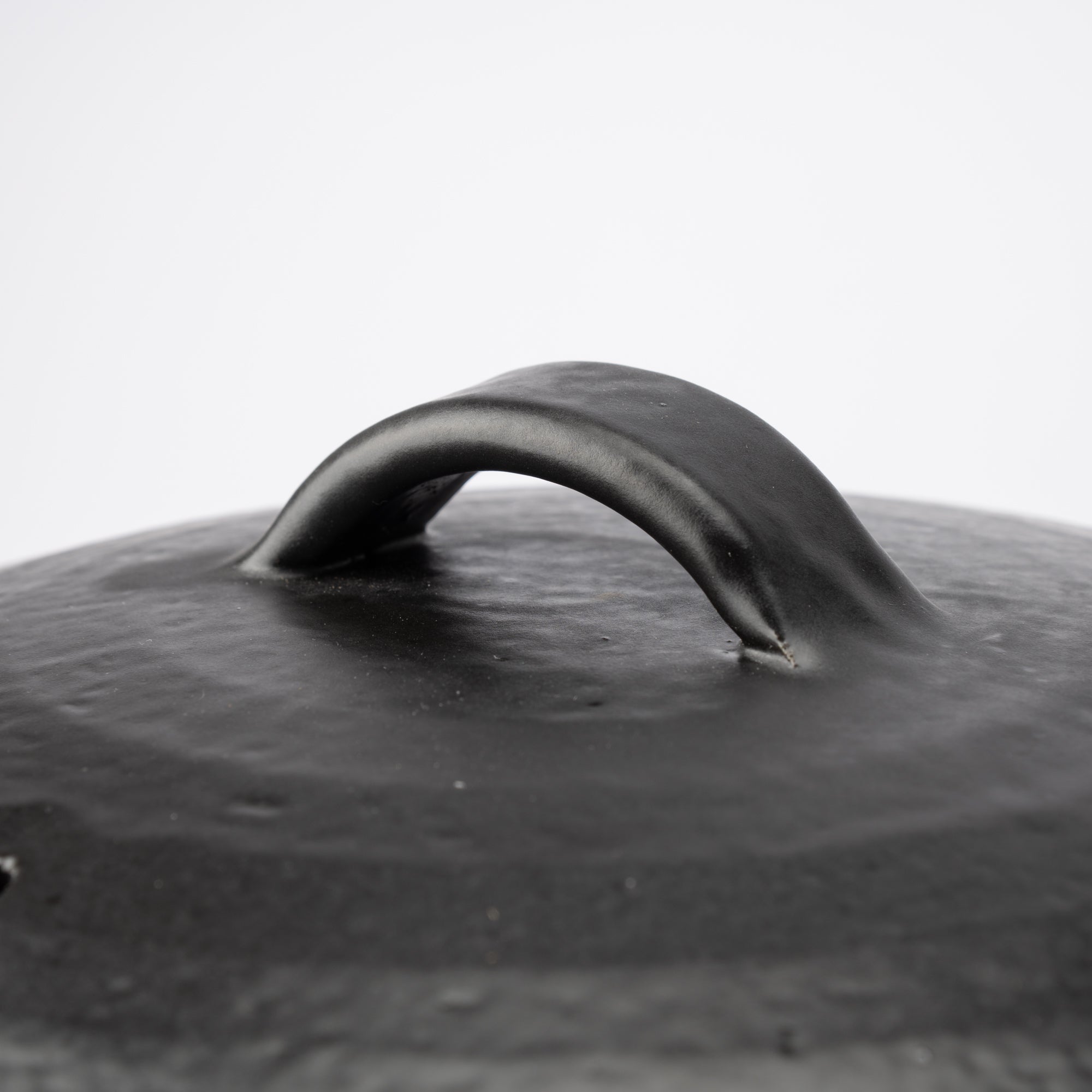
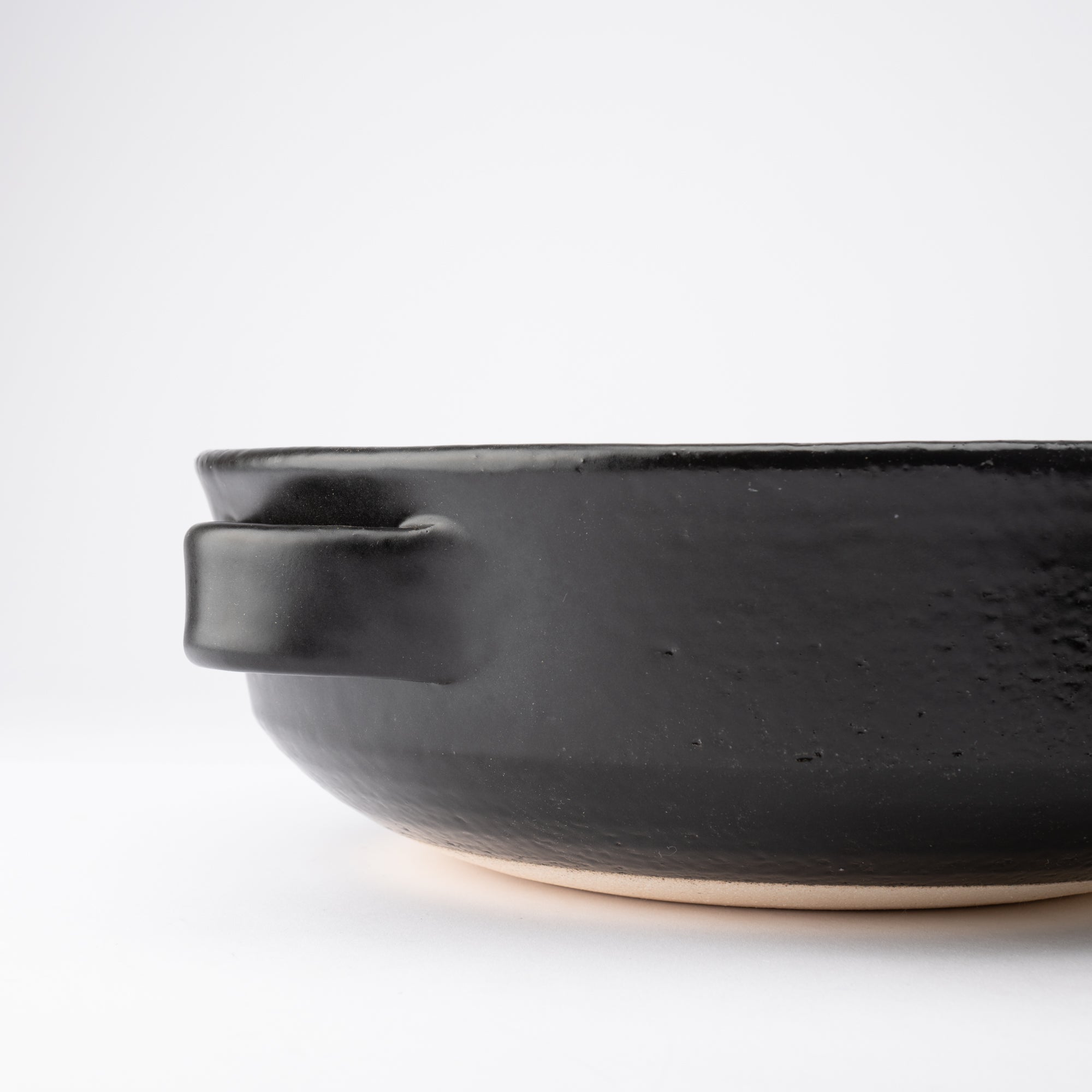
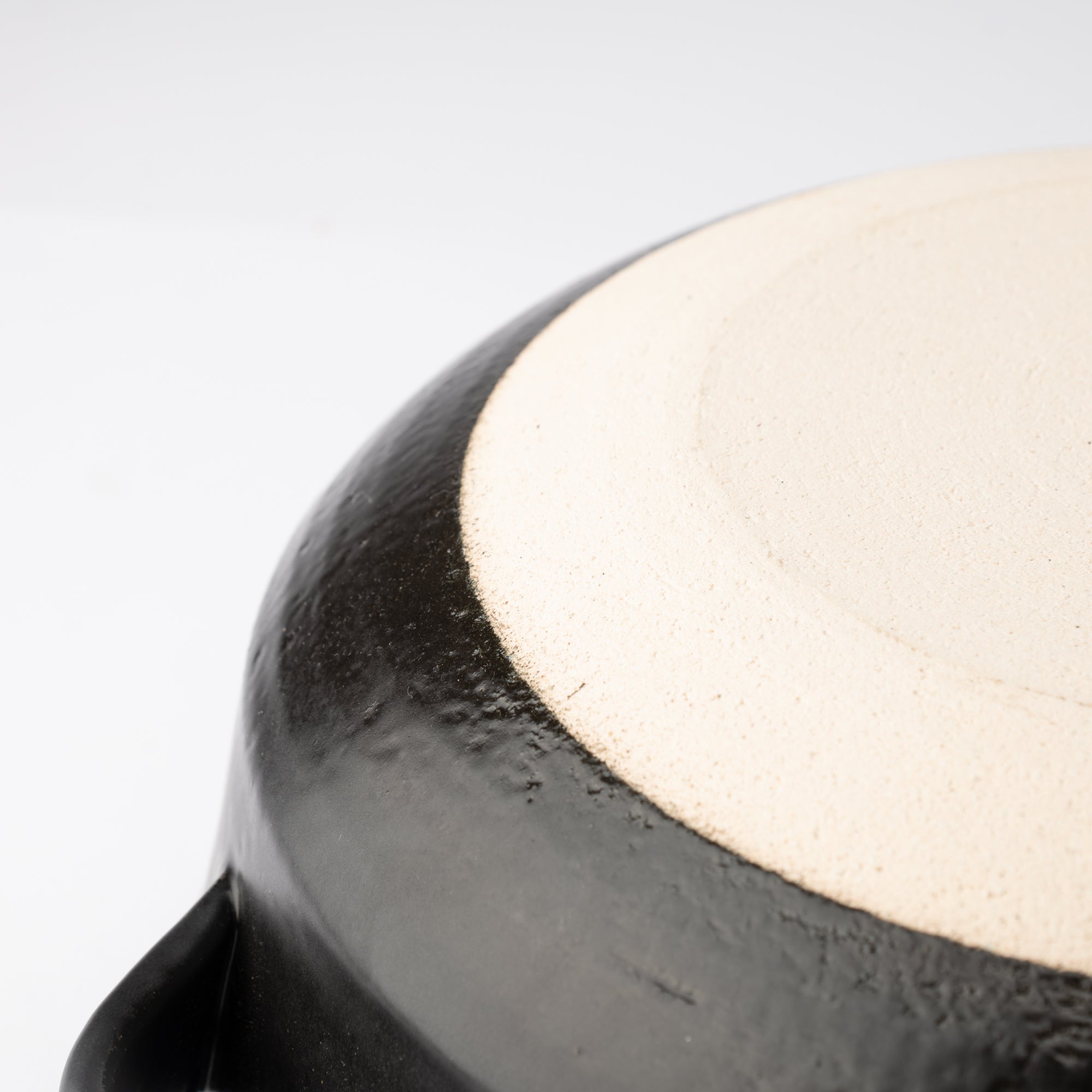
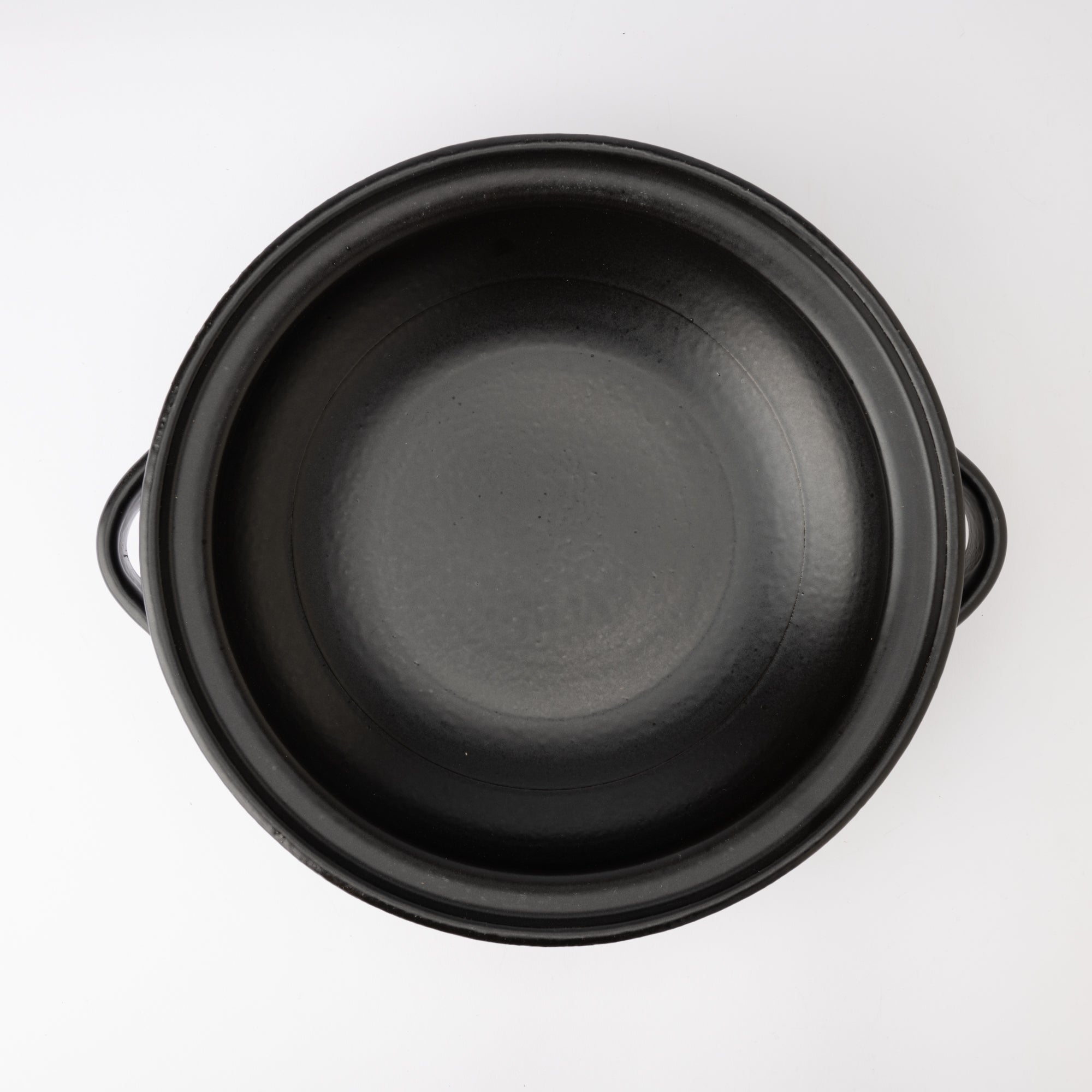
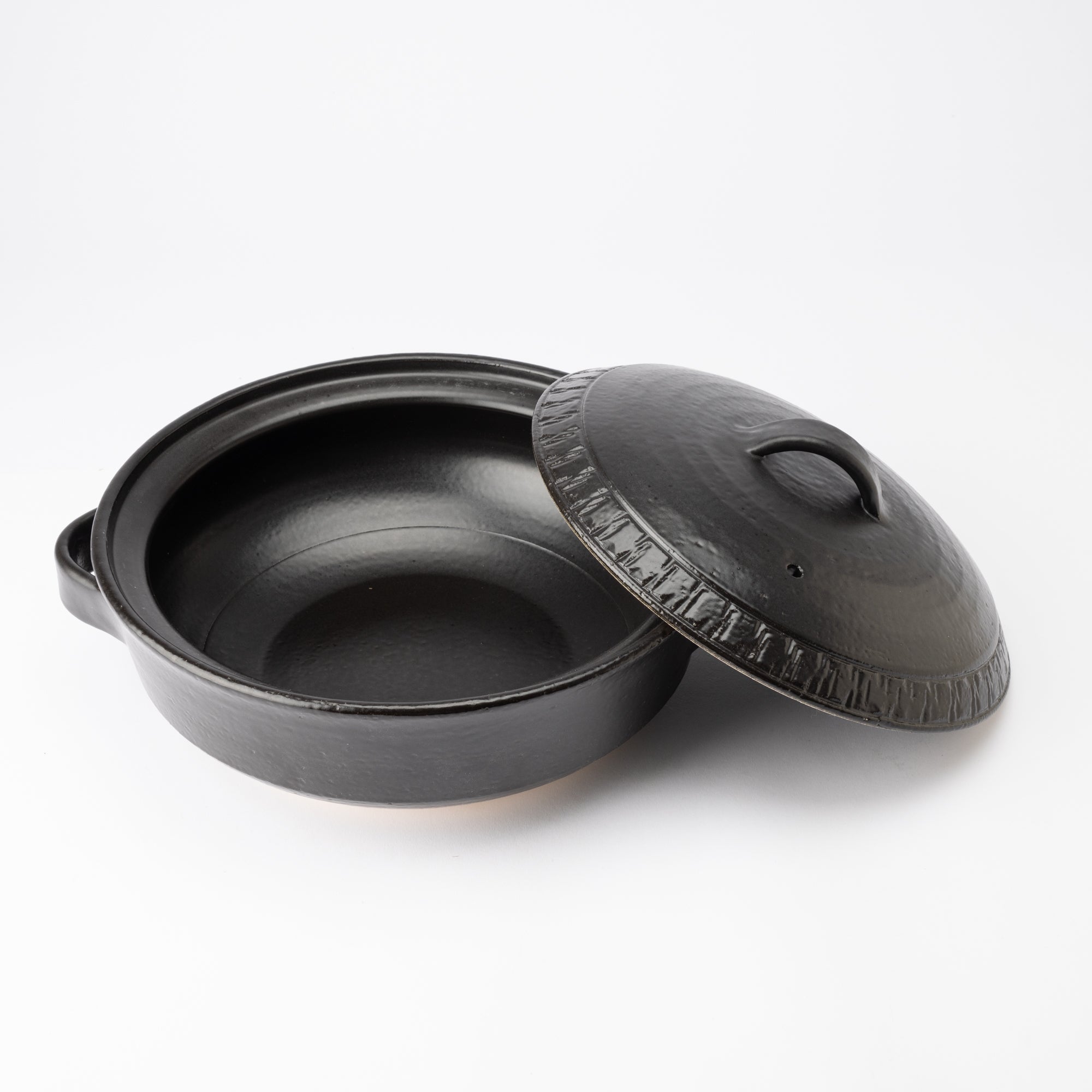
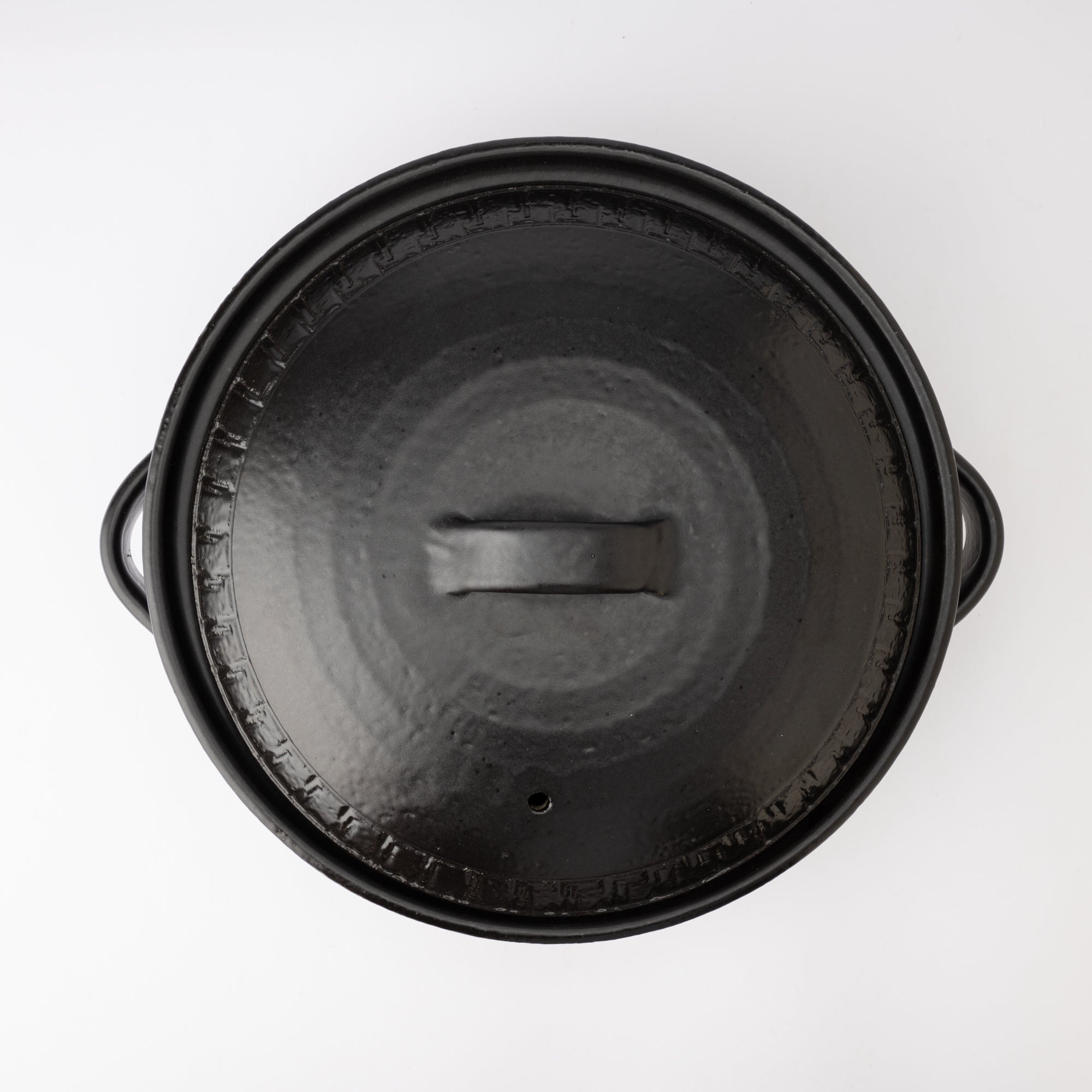
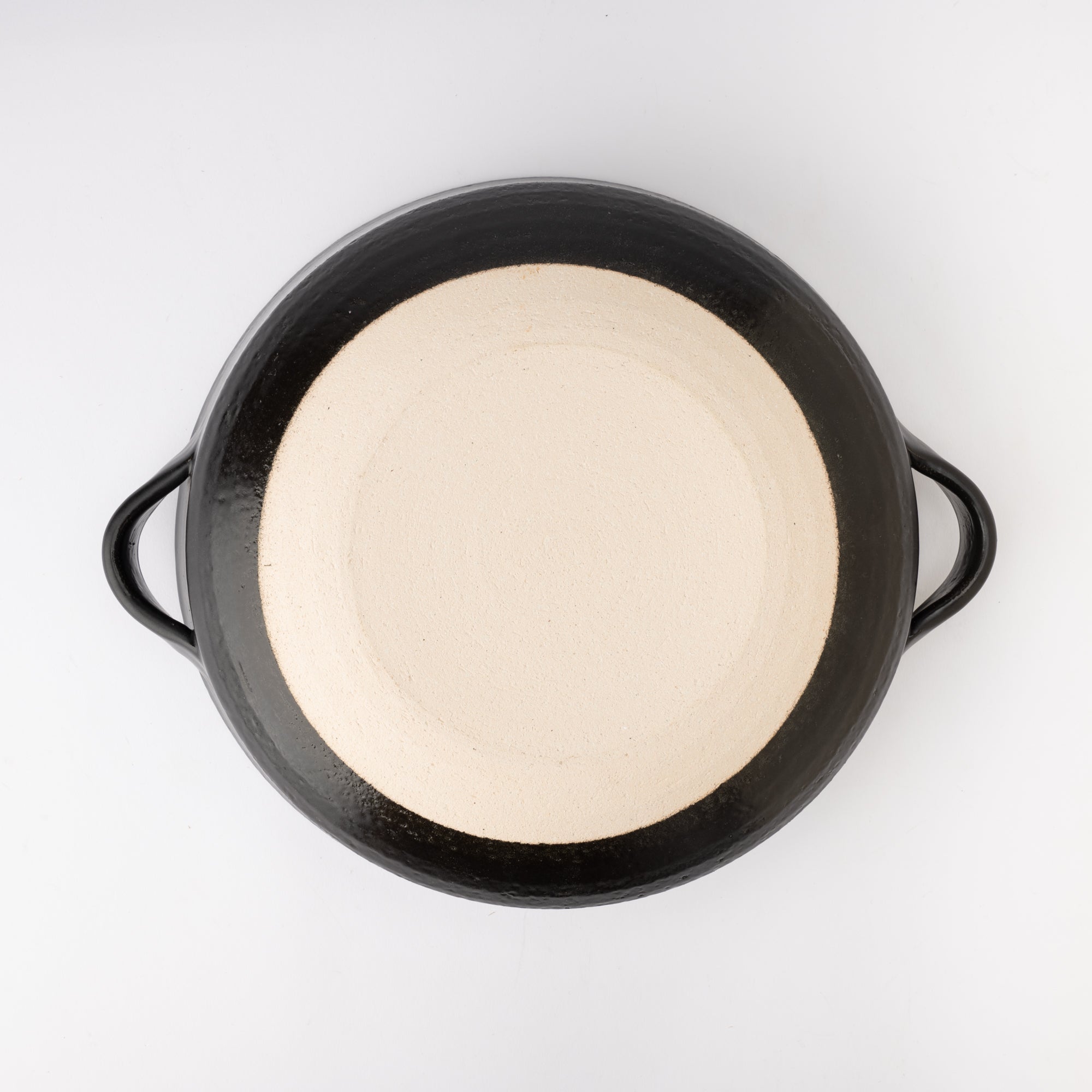
Black Donabe Japanese Clay Pot for 3 to 4 persons
Estimated Shipping Widget will be displayed here!
You can feel the handmade craftsmanship with the rustic designs on the edges of the pot, the lid and the handles. The lid is decorated with a technique called "Tobikanna," which is used to create a series of grinding marks. The pattern can be made evenly by using a tool called a "Kanna" and applying the blade while turning the wheel.
The matte-toned glaze gives this earthenware pot a subdued atmosphere. All the colorful vegetables look appetizing inside the dark colored clay of the pot.
With a little shallow shape, the size of 3.3L(111.6oz) is suitable for 3 to 4 persons to enjoy donabe dishes. For other dishes such as soup, stew, curry, cheese fondue, they can cook up to 4 to 5 people.
It can be used with an open flame, an electric cooktop, and an oven.
DETAILS
| Quantity | 1 |
| Size | D 28 cm (11 in) x H 16 cm (6.3 in) / For 3 to 4 people |
| Capacity | 3,300 ml (111.6 fl oz) |
| Material | Stoneware (Non-induction cookware) |
| Microwave | Yes |
| Dishwasher | No |
Maker / Brand
Founded in 1932 by Ginpo Toki, Ginpo is a renowned producer of Banko ware, a celebrated form of Japanese ceramics from Yokkaichi, Mie Prefecture, carrying on its tradition through four generations.
Its representative series—Kikka, Hana Mishima, and Sumi-Kannyu—combine refined craftsmanship with modern techniques, embodying both elegance and practicality. The PETARI line, on the other hand, reinterprets Japan’s traditional donabe clay pot for contemporary living, bringing joy to everyday cookware.
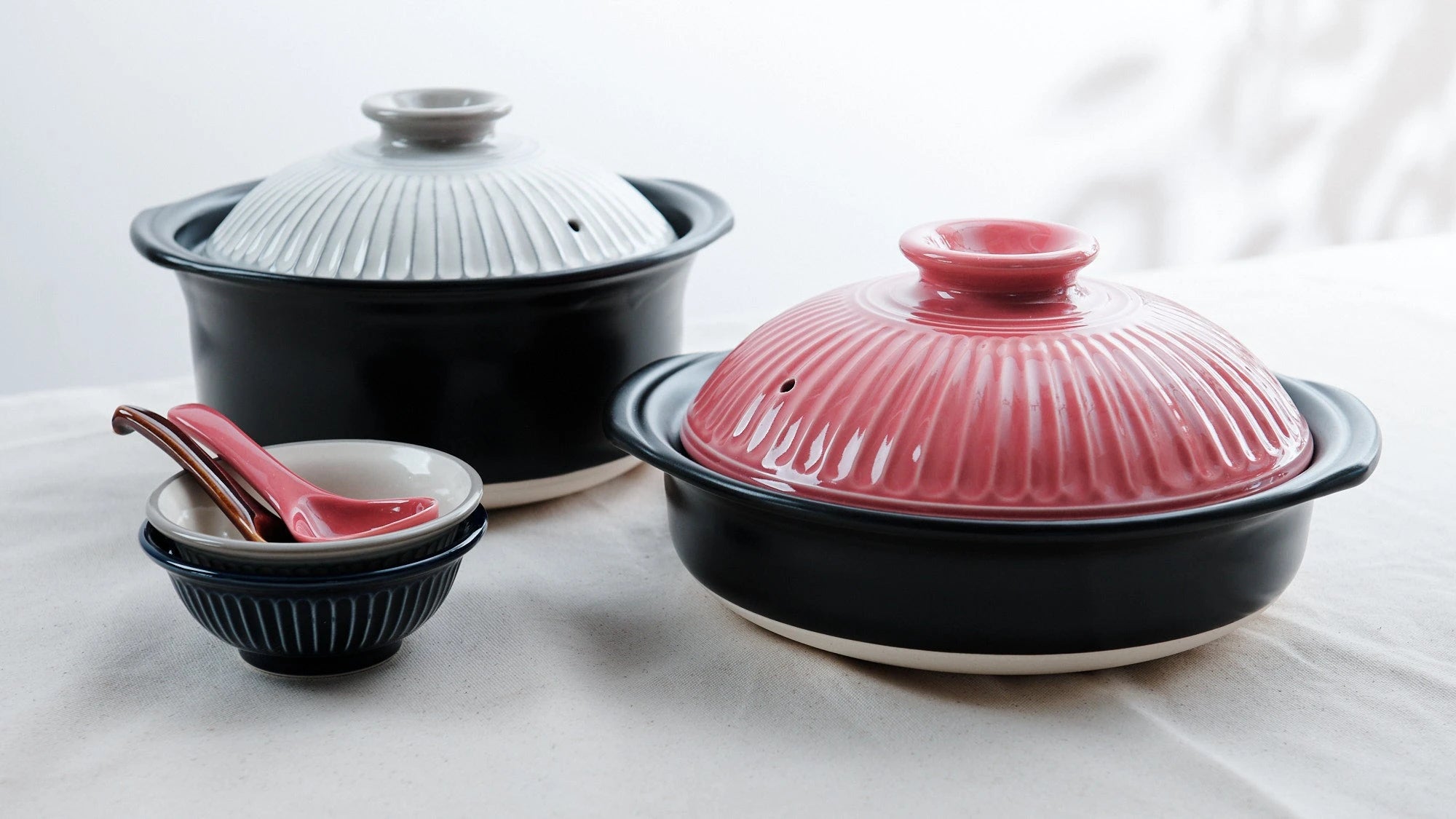
Crafts
Yokkaichi Banko ware—commonly known as Banko ware—finds its origins in the crafting of ceramics ranging from everyday tableware to flower vases. Today, it is best known for its donabe, or Japanese clay pots, valued for their durability and excellent heat retention. Around 80 percent of all donabe produced in Japan are Banko ware, making them an essential tool for home-cooked meals.
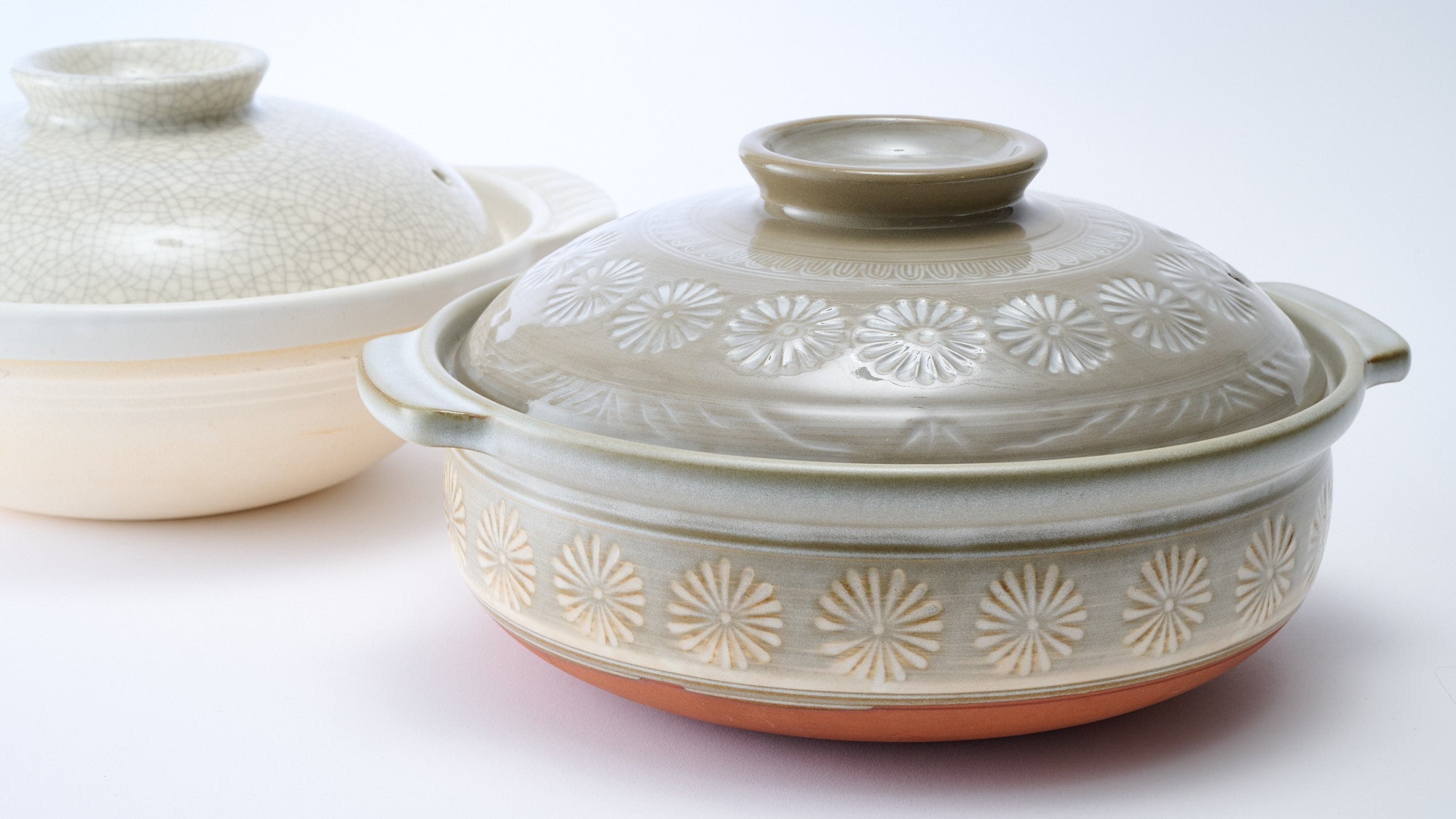
How to Care
Choose options

















Estimated Shipping Widget will be displayed here!
Donabe Clay Pots
Donabe, traditional Japanese clay pots, are often used in restaurants and homes to serve authentic hot pot dishes like chanko nabe, yudofu, and oden. These winter favorites are especially flavorful when prepared in a donabe.
Experienced chefs and science agree: cooking with a donabe makes food more delicious. Research shows that compared to a metal pot, cooking with a donabe clay pot can produce as much as 30% more glutamic acid, a key component of umami.
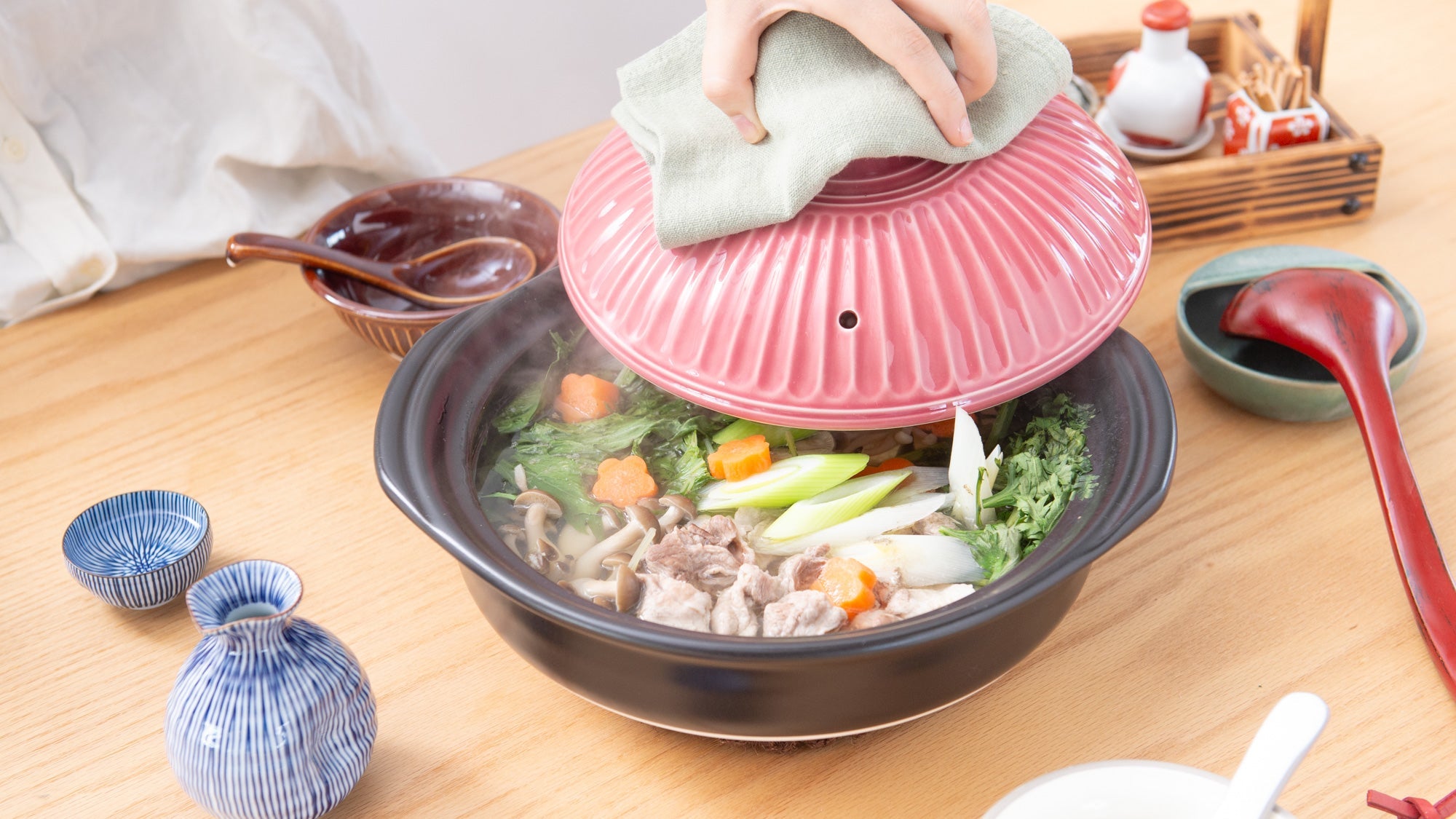
Stoneware
From our tableware and dinnerware collection, we have gathered stoneware products that fully display the warmth of the material. We hope that you will welcome these pieces, which are loved by people of all ages and regions, into your home.
